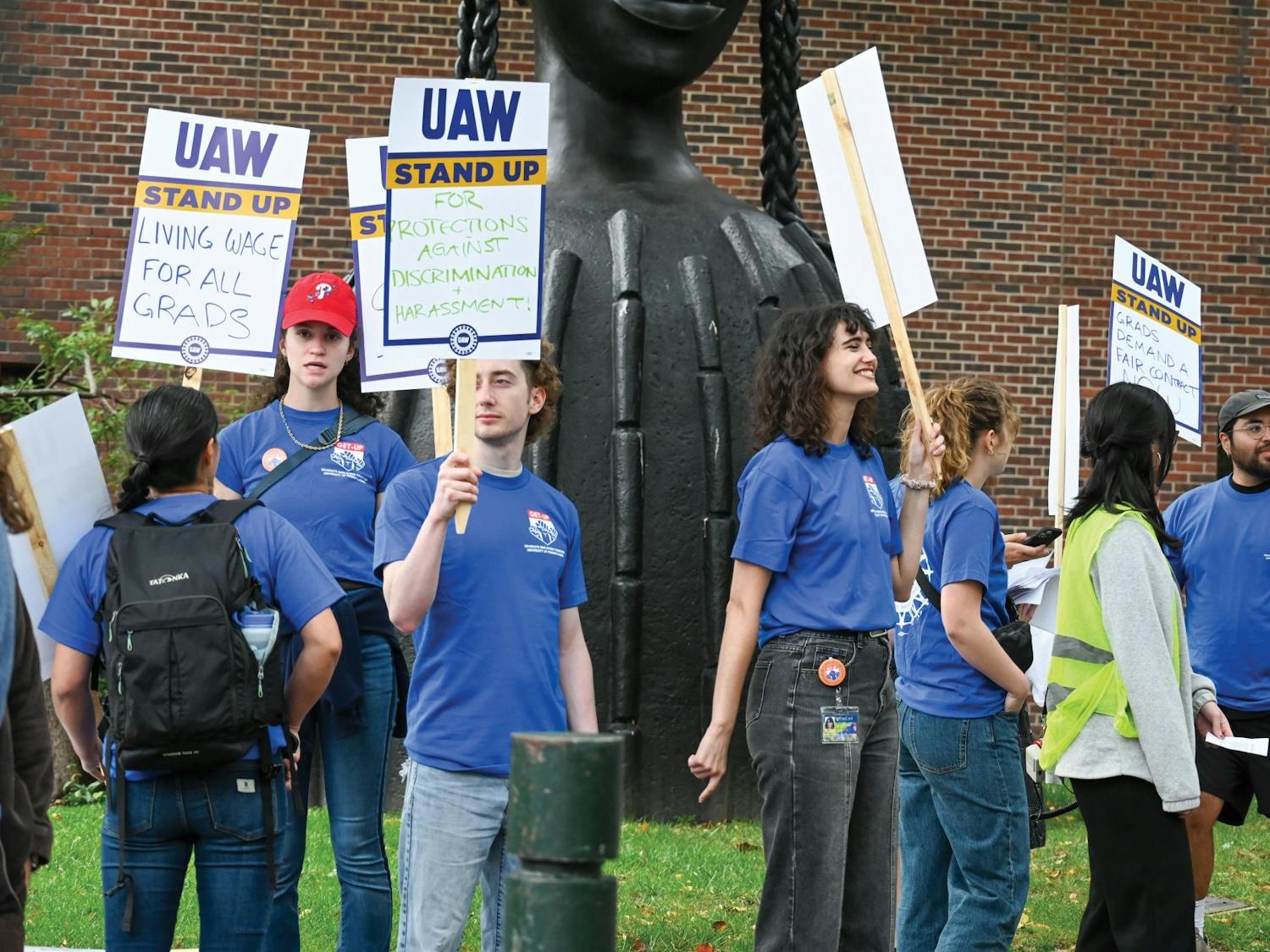The phrase "Wharton School" has appeared this year in about 760 articles culled from Nexis. But eliminate any stories that don't contain "University of Pennsylvania" or "Penn" and that number drops to about 540. That means the Wharton name appeared alone nearly 30 percent of the time. I became curious about this subject when I recently watched a biography of Wharton graduate Donald Trump -- the real-estate and casino mogul whose son now is following in his father's footsteps at Wharton -- on the Arts & Entertainment cable-television network. While delving into the Donald's formative years, the program's narrator mentioned that he attended Wharton. A black-and-white still photograph of the old Dietrich Hall, before the Steinberg shell was slapped on in 1983, filled the screen. But the narrator didn't mention the words "Penn" or "Pennsylvania." And a couple of minutes later, the gossip columnist Cindy Adams talked glowingly of Trump as a Wharton graduate without letting the P-word cross her mouth. Does it matter where Wharton is, anyway? Of course it does. Wharton and Penn are joined at the hip -- historically, financially (to a degree) and just by the fact that they share several acres of prime West Philadelphia real estate. Wharton was not founded separately from Penn; businessman Joseph Wharton in 1881 gave the University $100,000 to establish a "School of Finance and Economy," according to the University Archives World Wide Web page. And Wharton Dean Thomas Gerrity reports directly to Provost Stanley Chodorow, just as the deans of Penn's other 11 schools do. To be fair, Wharton deserves its reputation as the top (or one of the top) business schools in the country, as magazines and guides have consistently rated it. It has a first-class faculty and attracts the top high-school students and MBA candidates from around the world. Its rigorous academic program is almost unparalleled, and its graduates tend to earn larger salaries than those from other business schools. Wharton is undeniably one of Penn's crown jewels, and the University would do well to promote Wharton while using its reputation as a springboard to showcase other divisions that don't quite get all the attention they deserve. Wharton isn't the only prestigious business school named after an individual. The Massachusetts Institute of Technology has the Sloan School of Management. Northwestern University has the Kellogg Graduate School of Management. And the University of Virginia weighs in with the Colgate Darden Graduate School of Business Administration, or Darden for short. But Nexis says these schools, despite their reputations within the business world, rarely stand alone in name. Out of 103 articles mentioning "Kellogg School," 95 contain "Northwestern University." Of the 159 stories containing "Sloan School," almost all have the full name of its parent institute or its ubiquitous abbreviation. Darden got into just 34 articles this year on the Nexis database, but 30 of them also mention the University of Virginia. Wharton's public-affairs director, Chris Hardwick, is quick to point out instances in which Wharton just doesn't get a fair shake or plays second fiddle to Penn. All Wharton press releases say "The Wharton School of the University of Pennsylvania," the school's official name since the 1970s, he reminds me. And the Business Week and U.S. News & World Report rankings have "Pennsylvania" followed by "Wharton" in parentheses (the same goes for the other business schools). The October 21, 1996 Business Week article calls it "the University of Pennsylvania's Wharton School." But for ranking Wharton best, they can get away with that. Hardwick says also that my search doesn't catch instances in which a Wharton professor or department is mentioned but with only a Penn citation -- no Wharton mention. "It is not uncommon for our faculty to be identified as 'of the University of Pennsylvania' or for one of our programs to be referred to as 'Penn,' " he says. "All, of course, are part of Wharton, yet no mention of 'Wharton' may be given." Wharton gets credit, then, for trying to make the point that it's actually a part of Penn and not an independent entity. In any case, the school's World Wide Web site (at www.wharton.upenn.edu, its address is inextricably connected to Penn, and www.wharton.com is already taken) clearly states that it's the Wharton School of the University of Pennsylvania. Yet that 70 percent "Penn mention rate" still has me scratching my head. What about Penn's other, much smaller, school named after its chief benefactor? A search for "Annenberg School" turns up 111 articles in 1997. "University of Pennsylvania" and "Penn" appear in approximately half of those. Maybe that's why everyone confuses Penn with Penn State.
The Daily Pennsylvanian is an independent, student-run newspaper. Please consider making a donation to support the coverage that shapes the University. Your generosity ensures a future of strong journalism at Penn.
Donate







